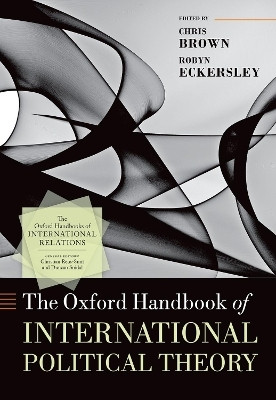The Oxford Handbook of International Political Theory(English, Hardcover, unknown)
Quick Overview
Product Price Comparison
International Political Theory (IPT) focuses on the point where two fields of study meet - International Relations and Political Theory. It takes from the former a central concern with the 'international' broadly defined; from the latter it takes a broadly normative identity. IPT studies the 'ought' questions that have been ignored or side-lined by the modern study of International Relations and the 'international' dimension that Political Theory has in the past neglected. A central proposition of IPT is that the 'domestic' and the 'international' cannot be treated as self-contained spheres, although this does not preclude states and the states-system from being regarded by some practitioners of IPT as central points of reference. This Handbook provides an authoritative account of the issues, debates, and perspectives in the field, guided by two basic questions concerning its purposes and methods of inquiry. First, how does IPT connect with real world politics? In particular, how does it engage with real world problems, and position itself in relation to the practices of real world politics? And second, following on from this, what is the relationship between IPT and empirical research in international relations? This Handbook showcases the distinctive and valuable contribution of normative inquiry not just for its own sake but also in addressing real world problems.The Oxford Handbooks of International Relations is a twelve-volume set of reference books offering authoritative and innovative engagements with the principal sub-fields of International Relations. The series as a whole is under the General Editorship of Christian Reus-Smit of the University of Queensland and Duncan Snidal of the University of Oxford, with each volume edited by specialists in the field. The series both surveys the broad terrain of International Relations scholarship and reshapes it, pushing each sub-field in challenging new directions. Following the example of Reus-Smit and Snidal's original Oxford Handbook of International Relations, each volume is organized around a strong central thematic by scholars drawn from different perspectives, reading its sub-field in an entirely new way, and pushing scholarship in challenging new directions.


